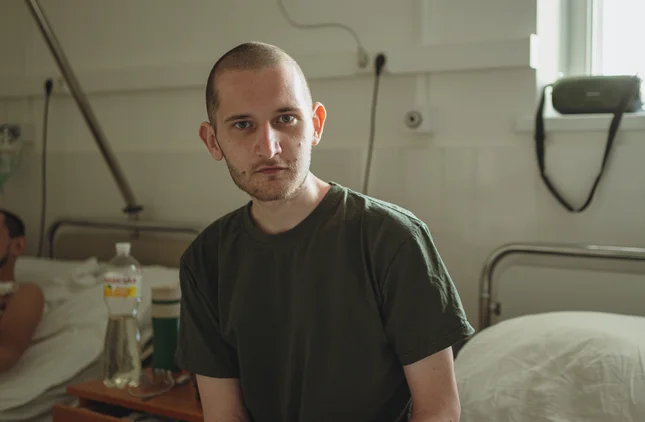Yura Hulchuk, a Ukrainian Marine from the 36th Brigade, captured the hearts of the nation after his release from Russian captivity. When he arrived home, he was unable to speak or show emotion when his mother tearfully embraced him. However, Yura has now broken his silence and is making significant progress in his recovery.
After spending nearly two and a half years as a prisoner of war, Yura was released on September 14, 2024. He returned home with severe physical and psychological trauma. He was immediately taken to a hospital in Kyiv, where he was unable to eat or speak on his own. He also showed no signs of recognizing his loved ones. His mother, Milana, who had fought tirelessly for his release, stood by his side, hoping for any sign of recognition.
After three days, Yura finally acknowledged his mother’s face and voice. On the fourth day, he had an emotional breakthrough and cried while clinging to her. Despite being warned by a psychiatrist that it could take a year for Yura to regain his ability to speak, he began talking just hours later. From that point on, his recovery progressed rapidly.
Yura’s time in captivity left both visible and hidden scars. His mother noticed changes in his behavior, especially when it came to eating. He would drink boiling water without hesitation, a habit he had developed from being forced to consume scalding food in captivity. When Milana asked him about it, he simply replied, “Nothing about the food,” giving a glimpse into the horrors he had endured.
The mental toll of captivity was also severe for Yura. He described feeling overwhelmed with uncertainty and fear during his time as a prisoner. He often wondered about the safety of his family and if the war had ended without his knowledge. “It was hard to keep track of time. I didn’t know if the days I thought were my birthdays were real. Every day felt the same, but I tried to stay positive,” he says.
The physical abuse in Russian captivity was brutal. Prisoners were starved, beaten, and forced to stand for long hours. Many developed severe dystrophy, with their swollen legs leaking lymph from unhealed wounds. After learning the full extent of her son’s suffering, Milana struggled to process the unimaginable evil he had faced. “I cried the whole way home, and when I got there, I screamed and hit the walls. My child endured such unimaginable evil!” she says.
Milana had been a vocal advocate for her son’s release, organizing protests for months. From June 2024, she spent six to seven hours a day protesting outside government buildings, demanding attention for prisoners of war. Despite suffering from two heat strokes during the hot summer, she continued her protests, sometimes joined by other families of POWs from the 36th Brigade. They carried photos of those who had died in captivity and of those still missing.
Read More @ euromaidanpress.com













